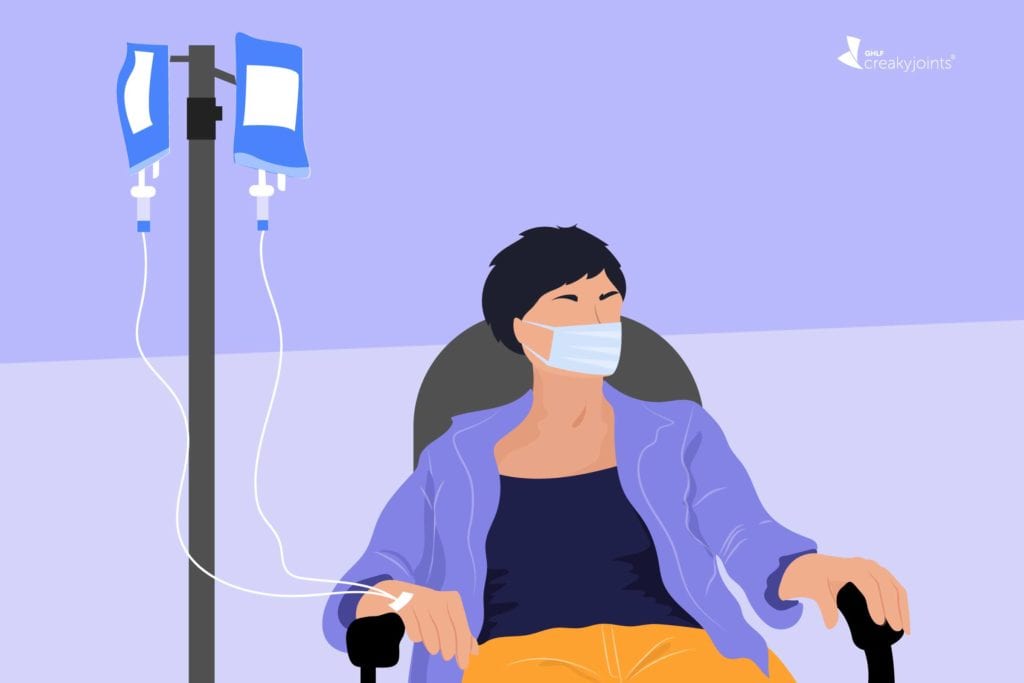In the ever-evolving landscape of medical advancements, biological infusion therapy stands out as a cutting-edge treatment approach for managing chronic diseases. As we delve into the realm of healthcare, the synergy between biologic infusion and infusion therapy becomes a beacon of hope for patients grappling with long-term health challenges.
The ratio of chronic and autoimmune diseases is becoming increasingly high among individuals. In this scenario, biological infusion therapy is one of the advanced treatment approaches for chronic diseases.
This blog post explores the transformative power of biological infusion therapy, shedding light on its significance in the realm of modern medicine. You will also get to know about the advantages of biological infusion therapy:
Biologic Infusion Therapy:
Biologic infusion therapy, often referred to as biologic infusion, is a specialized treatment method involving the intravenous administration of biological medications. These medications, derived from living organisms, target specific components of the immune system or cellular processes to modulate and alleviate the symptoms of chronic diseases. This therapeutic approach is particularly valuable for conditions where traditional treatments may fall short.
A subset of pharmaceuticals referred to as disease-modifying antirheumatic drugs (DMARDs) is called biologics. Medications known as non-biologic or classic DMARDs are composed of minuscule molecules, like methotrexate, that are created in a laboratory from chemicals.
Large molecules known as biologics are produced by living cells. Both, though in distinct ways, address the symptoms of inflammation. Unlike standard DMARDs, which suppress the immune system as a whole, biologics work by targeting particular immunological components, such as proteins that promote inflammation.
Biologic infusion treatment is a new and innovative way of giving biologics to patients. Compared to traditional DMARDs, biologics are more expensive, complex, and difficult to develop.
Additionally, they are not available as medication, in contrast to small-molecule medications. Certain products require an autoinjector and a prefilled vial for self-injection. Some are administered in a clinic or a physician’s office by intravenous (IV) infusion.
You understand the many ways that an autoimmune disease can interfere with day-to-day activities if you or a loved one suffers from one. There are a lot of them, but they all have the same potential to hurt like hell in different parts of your body and sometimes even change the way you go to the bathroom.
If traditional medicine hasn’t been working for you, you could also feel frustrated and helpless. In any case, biological infusion therapy is a cutting-edge approach to the treatment of autoimmune illnesses.
The Role of Infusion Therapy in Biological Infusion:
Infusion therapy, a mode of treatment that involves delivering medications directly into the bloodstream through a needle or catheter, plays a pivotal role in the administration of biological infusions.
This method ensures precise delivery, allowing the therapeutic agents to circulate efficiently throughout the body. Infusion therapy is commonly employed for a range of chronic diseases, including autoimmune disorders, rheumatoid arthritis, and certain types of cancer.
Advantages of Biological Infusion Therapy:
Well, there are countless advantages which you will get when you receive the biological infusion therapy. Some of them are listed below:
- Targeted Treatment: Biological infusions are designed to target specific pathways involved in the disease process, minimizing the impact on healthy tissues and organs.
- Longer Duration of Action: Infusions often provide a sustained therapeutic effect, reducing the frequency of treatments and improving patient compliance.
- Customized Care Plans: Healthcare providers can tailor infusion therapy schedules to meet the unique need of each patient, ensuring personalized and effective treatment.
- Reduced Side Effects: By precisely targeting disease-related pathways, biological infusion therapy may result in fewer side effects compared to traditional systemic treatments.
- Improved Quality of Life: Many patients report enhanced quality of life and symptom management with biological infusions, allowing for better disease control and functionality.
Conditions Treated with Biological Infusion Therapy:
Autoimmune and chronic diseases arise when your immune system unintentionally targets healthy cells within your body. In certain cases, the organ or target region is the site of the attack. Others might feel effects all over their bodies.
The growing frequency of these disorders implies that environmental factors may be involved, even though the exact causes remain unknown. These toxins include heavy metals (found in water, cookware, and some pesticides sprayed on food), chemicals found in detergents and personal hygiene items, and persistent inflammation caused by processed foods. Gene mutations could potentially have a role.
Following are some of the chronic diseases which can be treated with the biologic infusion therapy:
- Rheumatoid arthritis
- Crohn’s disease
- Psoriasis
- Multiple sclerosis
- Certain types of cancers
- Inflammatory bowel disease
- Lupus
- Grave’s disease or thyroid eye disease
- Addison’s disease
- Celiac disease
- Type I diabetes
Biological infusion therapy represents a groundbreaking approach to managing chronic diseases, providing targeted and effective treatments for patients. The marriage of biologic infusion and infusion therapy signifies a new era in healthcare, where personalized and precise interventions hold the promise of improved outcomes and enhanced quality of life.
As research continues to unveil the potential of this advanced treatment modality, the future of biological infusion therapy shines brightly as a beacon of hope for those navigating the complexities of chronic illness.
Treatment Options for Chronic Disease:
Nonsteroidal anti-inflammatory drugs (NSAIDs), such as ibuprofen and naproxen, and prescription immune-suppressing pharmaceuticals are frequently used to treat autoimmune illnesses.
Your physician may also suggest modifying your lifestyle to include regular exercise and a healthy diet (with a reduction in processed foods and added sugars).
On the other hand, conventional treatment approaches don’t always work to reduce symptoms, and even when they do, some people may find it difficult to take oral drugs. Treatment with biological therapy might be a sensible decision in certain situations.
Fuse Infusion offers Biological Infusion Therapy for Chronic Disease
We at FuseInfusion.com provide you with the greatest treatment options if your doctor has prescribed biological therapy for the treatment of chronic autoimmune diseases. We use specialized biological medicines to treat and assist patients in overcoming this chronic condition.
Throughout biological infusion therapy, each Fuse Infusion patient receives personalized attention and care from our licensed professionals, who also provide comprehensive medical management.
Each patient receives personalized care from beginning to end. Medical staff are available on call as necessary.
We at Fuse Infusion are committed to providing our patients with top-notch care. So contact us today to get a biological infusion therapy treatment!

